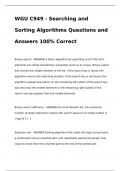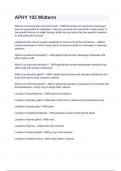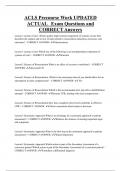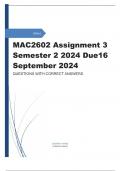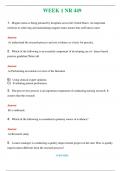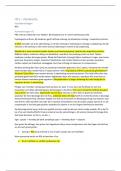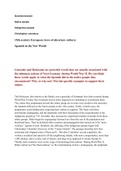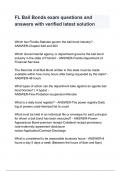Exam (elaborations)
WGU C949 - Searching and Sorting Algorithms Questions and Answers 100% Correct
- Course
- Institution
WGU C949 - Searching and Sorting Algorithms Questions and Answers 100% CorrectWGU C949 - Searching and Sorting Algorithms Questions and Answers 100% CorrectWGU C949 - Searching and Sorting Algorithms Questions and Answers 100% CorrectWGU C949 - Searching and Sorting Algorithms Questions and Answers...
[Show more]
